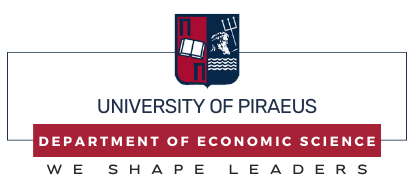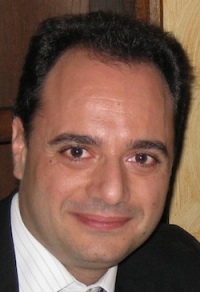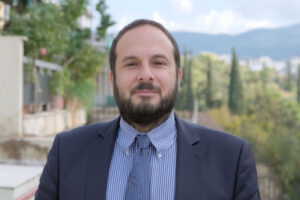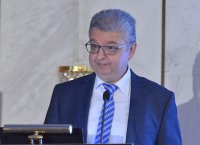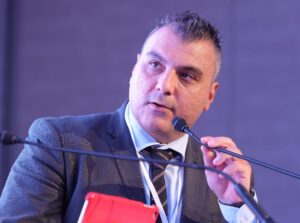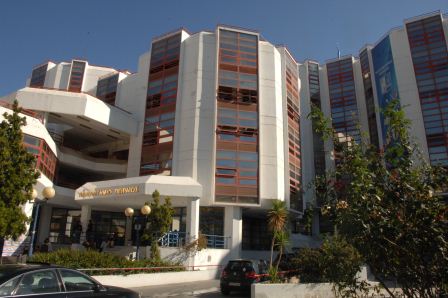Department of Economics
27 January 2024 2024-04-01 18:04Department of Economics
Contact Information:
Address: 80 Karaoli & Dimitriou Str., 185 34, Piraeus
Email: oik-secr@unipi.gr
Phone: +30 210 414-2080, -2081, -2159, -2077, -2078

On behalf of all the members of our academic community, I wish to welcome you to the Department of Economics. Our Department is the oldest at the University of Piraeus, with over 85 years of history, and its primary objective is acquiring, promoting and deepening knowledge in the field of Economics, as well as the development of the Department at the local, national, European and international level.
The Department of Economics places great importance on cooperation with other universities and organizations in Greece and abroad, on creating Links with the Labor Market through internships and other types of collaborations, and on the values of Excellence in Research and Education, Social Responsibility and Contribution to Society and the Economy. It is our strong belief that these values will aid us in shaping leading personalities for our students, imbuing them with traits that will define their future to great extent. We place great emphasis on the develpment of a multifaceted personnality: knowledge gain, but also critical thinking accompanied with the development of skills such as teamwork and cooperation, time management, creative and analytical thought, as well as interpersonal comunication.
In this website you will find information regarding all of these aspects: studying in our Department, our research, and above all the people that work every day to achieve these goals. I hope that you’ll find at least some of the answers to the questions that brought you here, and that you’ll come to understand the spirit that underlies our Department and the University.
Professor Yannis A. Pollalis
Department Chair
The Department of Economics has a single long term goal: to contribute to the creation of high quality knowledge and research in the field of Economics.
The four-year Undergraduate Program consists of a multitude of core courses on foundational subjects of economics and electives that focus on contemporary issues, thus providing both a theoretical background and the empirical knowledge necessary to comprehend complex economic issues. Additionnally, the Program gives its students the opportunity to participate in the Erasmus+ mobility program – the EU’s flagship student exchange program – as well as internship opportunities in a variety of industries.
At the postgraduate level, the Department offers five Master’s programs that lead to a corresponding degree(Master of Science – M.Sc.):
- Economic & Business Strategy
- Health Economics & Management
- Economics of Education and Management of Educational Units
- Bioeconomy, Circular Economy and Sustainable Development
- Applied Public Economics & Policy
Additionnally, the Department offers a Ph.D. program in Economics, as well as Post-Doc opportunities.
For more information, please visit the “Studies” tab.
Our graduates enjoy an excellent reputation and are well-appreciated by both the private and public sector in the country, while many of our former students hold positions in top EU or US schools. The above factor is reflected in international rankings (e.g. our Department is ranked 200-300 in the Academic Ranking of World Universities – ARWU, also known as Shanghai Ranking).
The quality of research in our Department is reflected in the amount of leading journals that publish our work, the competence of existing and recently hired academic staff, the recruitment of talented Ph.D. and Post-Doc students, and the resources and activities devoted to research. For this purpose, the Department has 7 fully equipped University Labs specializing in research on cutting edge subfields of Economics. Namely:
- ETOS (Enterpreneurship, Technology and Economic Strategy Lab)
- TESMOL (Transport Economics and Sustainable Mobility Lab)
- LabHem (Health Economics and Management Lab)
- LORED (Local and Regional Development Lab)
- Bioeconomy and Sustainable Growth Laboratory
- EFMRCG (Economics of Financial Markets, Risk Management and Corporate Governance Lab)
- iLeads (Strategic Leadership & Digital Transformation Lab)
Additionnaly, the Department organizes two types of research seminars:
- The Internal Seminars, which are a platform to provide Ph.D. candidates the opportunity to present their own research activities, as well as to come in contact with the research of leading scientists
- The Joint Economic Research Seminar Series (JERS), which is an cooperation initiative between the Economics Departments of several Greek Universities for the joint organization of seminars and workshops, aiming at the advancement of research cooperation and learning. Our department functions as the host institution for this initiative.
Finally, the Department hosts the peer reviewed SPOUDAI – Journal of Economics and Business, an EconLit international journal (the only one of its kind in Greece).
The Department offers online courses through the University’s E-Learning platform. These are courses designed for people who wish to study applied economics issues with an aim to either improve their job market outlook or to enrich their professional knowledge portfolio.
For more information, please visit the following website:
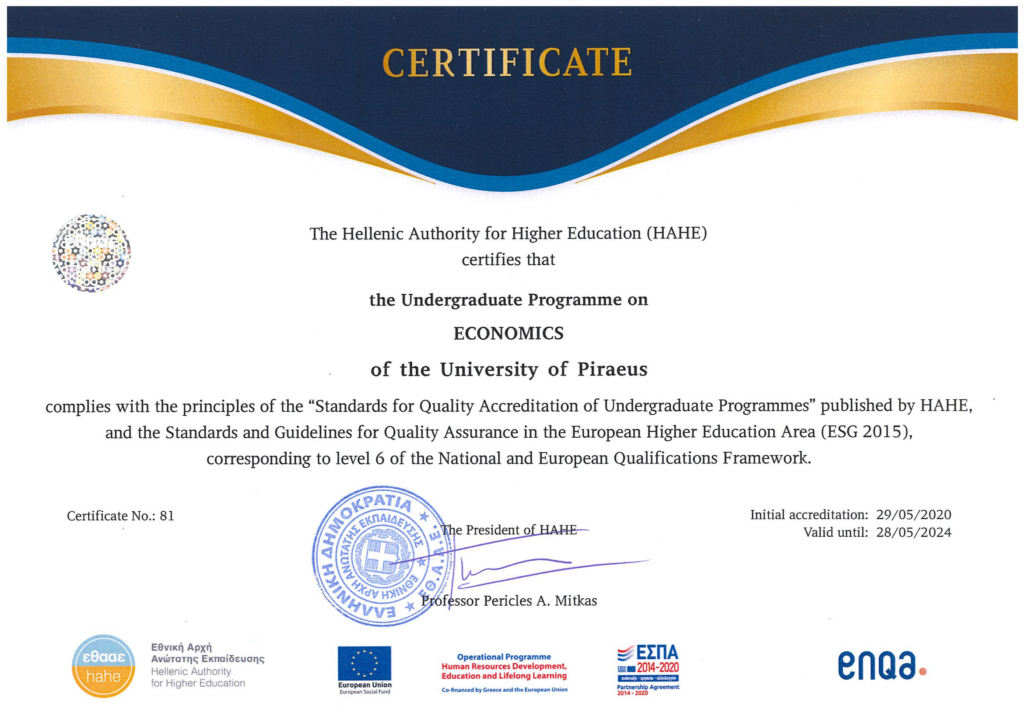
Teaching & Research Personnel
Faculty
Professors
Associate Professors
Assistant Professors
Adjunct Faculty
Kyriazis Spyridon
Adjunct Faculty, Winter Semester, 2024-2025
Courses taught:
Economics of Transportation and Shipping (3rd Semester)
Regional Economics (5th Semester)
Office Hours: Tuesday 12:15-14:15, Room Nr. 531 (Main Building)
Contact: skyriaz@unipi.gr
Patergiannaki Zoi
Adjunct Faculty, Winter Semester, 2024-2025
Courses taught:
International Business Activity (7th Semester)
Leadership in the Digital Age (7th Semester)
Office Hours: Wednesday 14:00-16:00, Room Nr. 518 (Main Building)
Contact: z.patergiannaki@unipi.gr
Office Hours
Agiakloglou Christos
Fall Semester 2024-2025
| DAY | TIME |
| MONDAY | 12:00-13:00 |
| TUESDAY | 12:00-13:00 |
Spring Semester 2024-2025
Monday 11:00-12:00
Wednesday 10:00-11:00
Agiropoulos Charalampos
Winter Semester 2024-2025:
- Wednesday: 12:00 – 14:00
- Friday: 12:00 – 14:00
Spring Semester 2024-2025:
- Thursday: 12:00 – 14:00
- Friday: 12:00 – 14:00
Arghyrou Michael
Chletsos Theologos - Michail
Fall Semester 2024-2025
For students enrolled in “Economics of Inequality and Poverty”:
-
Wednesday 16:00 – 17:00
-
Friday 10:00 – 11:00
For students enrolled in “Economics of Education”:
-
Wednesday 17:00 – 18:00
-
Friday 11:00 – 12:00
Spring Semester 2024-2025
For students enrolled in “Economics of Social Protection”: Thursday & Friday 08:00 – 09:00
Chronopoulos Panagiotis
Wednesday 10:00 – 12:00
Thursday 10:00 – 12:00
Drivas Kyriakos
Fall Semester 2024-2025
- Monday, 12:00-14:00
- Thursday, 12:00-14:00
Spring Semester 2024-2025
- Monday, 10:00-11:00
- Thursday, 16:00-18:00
Economidou Charikleia (Claire)
Fall Semester 2024-2025
Tuesday, 12:00-14:00
Spring Semester 2024-2025
Monday, 12:00-14:00
Eleftheriou Konstantinos
Fall Semester 2024-2025
- Tuesday , 10:00 -12:00
- Wednesday, 12:00 -14:00
Spring Semester 2023-2024
- Tuesday , 10:00 -12:00
- Wednesday, 16:00 -18:00
Kanas Angelos
Spring Semester 2024-2025:
Contact during Office Hours: Thursday 08:00-10:00
Karadimitropoulou Aikaterini-Effraimia
Fall Semester 2024-2025
Tuesday, 10:00-12:00
Wednesday, 12:00-14:00
Spring Semester 2024-2025
Monday 12:00-14:00
Thursday 10:00-12:00
Karkalakos Sotirios
Fall Semester 2024-2025
-
- Tuesday, 12:00-15:00
Spring Semester 2024-2025
-
- Monday, 12:00-14:00
Kokores Ioanna
- Fall semester 2024-25
- In person or via MS Teams call to the instructor every Thursday at 12:00-14.00 and every Friday at 16.00-18.00
- Spring semester 2024-25
- In person or via MS Teams call to the instructor every Monday at 16:00-18.00 and every Thursday at 18.00-20.00
Kottaridi Constantina
Fall semester 2024-2025
- Monday, 11:00-12:00
- Tuesday, 11:00-12:00
Spring semester 2024-2025
Thursday 2.00-2.30
Friday 10.30-12.00
Michelacakis Nickolas
Fall semester 2024-2025
- Friday, 12:00-14:00
Spring semester 2024-2025
Wednesday 12:00-14:00
Updated information at http://www.unipi.gr/faculty/njm/njm_en.html
Pantelidis Pantelis
Fall Semester 2023-2024
Monday 16:00-18:00
Spring Semester 2023-2024
Monday 16:00-18:00
Thursday 16:00-18:00
Polemis Michael
Fall semester 2024-2025
Monday 14:00-16:00 and Thursday 10:00 – 12:00
Spring semester 2024-2025
Thursday 12 00 – 14 00 and Friday 10:00-12:00
Pollalis Yannis
Fall semester 2024-2025
- Monday, 10:00-12:00
- Thursday, 15:00-17:00
Spring semester 2024-2025
-
- Monday, 14:00-16:00
- Thuesday, 14:00-17:00
Psillaki Maria
Fall Semester 2024-2025
- Monday, 09:00-10:00
- Wednesday, 09:00-10:00
Spring Semester 2024-2025
-
- Tuesday, 09:00-10:00
- Thursday, 09:00-10:00
Raikou Maria
Fall Semester 2024-2025
Wednesday: 16:00-18:00
Spring Semester 2024-2025
Wednesday: 16:00-18:00
Tselekounis Markos
Fall semester 2024-2025
Wednesday, 12:00-14:00
Spring semester 2024-2025
Wednesday, 12:00-14:00
NOTE: During the exam periods, there are no office hours.
Vlamis Prodromos
Fall Semester 2024-2025
Wednesday 10.00 – 11.00
Friday 10.00 – 11.00
Spring Semester 2024-2025
Wednesday 10.00-11.00
Vozikis Athanasios
Fall semester 2024-2025
- Monday, 10:00-12:00
- Wednesday, 08:00-10:00
Spring semester 2024-2025
-
- Monday, 10:00-12:00
- Tuesday, 12:00-13:00
Former Academic Staff
| Name | Title |
| Benos Theofanis | Professor |
| Brisimis Sofoklis | Professor |
| Drakos Georgios | Professor |
| Efthimoglou Prodromos | Professor |
| Fafaliou Eirini | Professor |
| Giannakopoulos Nikolaos | Professor |
| Hadjidema Stamatina | Professor |
| Hassid Iosif | Professor |
| Ithakisios Dionisios | Associate Professor |
| Kalafatis Athanasios | Associate Professor |
| Karagiannis Anastasios† | Professor |
| Katsanevas Theodoros | Professor |
| Lazaris Apostolos† | Professor |
| Livas Petros† | Professor |
| Ntouskos Petros† | Associate Professor |
| Palaiologos Ioannis | Professor |
| Pantelidis Pantelis | Professor |
| Papageorgiou Petros | Professor |
| Sambrakos Evangelos | Professor |
| Sarantidis Stilianos† | Professor |
| Skountzos Theodoros | Professor |
| Spiratou Eftihia | Assistant Professor |
| Vartholomaios Ioannis† | Professor |
| Yannelis Dimitrios | Professor |
Emeritus Professors
Name | Title |
Benos Theofanis | Professor |
Brisimis Sofoklis | Professor |
Drakos Georgios | Professor |
Efthimoglou Prodromos | Professor |
Fafaliou Eirini | Professor |
Giannakopoulos Nikolaos | Professor |
Hadjidema Stamatina | Professor |
Hassid Iosif | Professor |
Katsanevas Theodoros | Professor |
Lazaris Apostolos† | Professor |
Livas Petros† | Professor |
Palaiologos Ioannis | Professor |
Papageorgiou Petros | Professor |
Sambracos Evangelos | Professor |
Sarantidis Stilianos† | Professor |
Skountzos Theodoros | Professor |
Vartholomaios Ioannis† | Professor |
Yannelis Dimitrios | Professor |
Post-Doctoral Researchers
Name | Supervisor | Research Topic |
Georgi Christina | Vozikis Athanasios | Pulmonary Hypertension: quality of life and out of pocket payments |
Karakostas Emmanouil | Pollalis Ioannis | The role of intermediate goods in firms’ competitiveness |
Karamanis Dimitrios | Economidou Claire | Immigration, Policies and Growth |
Karaferis Dimitrios | Pollalis Ioannis | Artificial Intelligence and Robotics as quality factors in the public sector – healthcare services analysis |
Kyrkopoulou Eleni | Economidou Claire | Experimental Evidence of neighborhood Effects: The case of the 2004 Athens Olympic Village |
Konstantios Dimitrios | Economidou Claire | The role of innovation in firms’ sustainability and funding |
Maniatis Georgios | Polemis Michael | Interdisciplinary elements of higher education – the case of law professionals’ economics training |
Balaska Dimitra | Pollalis Ioannis | Digital Transformation in Healthcare |
Sindos Andreas | Chletsos Theologos – Michael | The effect of job insecurity on households’ financial decisions |
Tsarsitalidou Sofia | Chletsos Theologos – Michael | The effect of foreign aid on institutions |
Frangoulakis Vasileios | Vozikis Athanasios | The use of artificial intelligence in the identification of genetic traits and the prediction of clinical phenotypes in the practice of personalized medicine |
Ph.D. Graduates
Name | Supervisor | Date of Completion | Dissertation Topic |
Aggelopoulos Michael | Pollalis I. | 17/6/2020 | Lean management practices and strategies for resource saving in public corpotations |
Agkyropoulos Charalampos | Agiakloglou C. | 1/6/2018 | Investigation of spurious regression for stationary timeseries with linear trend and structural breaks |
Armoutaki Archontoula | Pollalis I. | 8/9/2020 | Empirical research and analysis on cigarette consumption, excise taxation and government revenues |
Balaska Dimitra | Pollalis I. | 23/06/2021 | Assessment of health related quality of life and cost in minimally invasive spinal surgery |
Bechlioulis Alexandros | Economidou C. | 30/11/2017 | THE IMPLICATIONS OF FINANCIAL RISK FOR HOUSEHOLD CONSUMPION UNDER MACROPRUDWNTIAL POLICY RULES |
Chanis Stefanos | Papageorgiou P. | 18/7/2012 | Assessment and evaluation of the rate of return on investment in post-secondary vocational education and training in Greece |
Christopoulos Konstantinos | Eleftheriou K. | 12/7/2023 | Pharmaceutical Expenditure in the Developed Countries: Determinants, Convergence Trends and the Effect of the Economic Crisis |
Dellis Konstantinos | Karkalakos S. | 1/2/2017 | THE ROLE OF ENTREPRENEURSHIP, TRADE AND FDI FOR THE DIFFUSION OF KNOWLEDGE (ΑΝΑΠΤΥΞΗ ΚΑΙ ΤΕΧΝΟΛΟΓΙΑ: Ο ΡΟΛΟΣ ΤΗΣ ΕΠΙΧΕΙΡΗΜΑΤΙΚΟΤΗΤΑΣ ΤΟΥ ΕΜΠΟΡΙΟΥ ΚΑΙ ΤΩΝ ΑΞΕ ΣΤΗ ΔΙΑΧΥΣΗ ΤΗΣ ΓΝΩΣΗΣ) |
Euthimiou Panagiota | Vozikis A. | 23/2/2023 | Economic and Behavioral Lifestyle Interventions to Confront Health Risk Factors: Rationale and Impact on Health and Expenditures |
Giaka Mari | Fafaliou E. | 23/9/2020 | “Essays in Business Strategy, Sustainability and Innovation” |
Karamanis Dimitrios | Economidou C. | 30/11/2017 | ESSAYS ON TECHNOLOGY TRANSFER AND DIFFUSION |
Karpouzis Efstathios | Psillaki M. | 31/5/2019 | Alternatives modes of financing: Hedge Fund Activism and Crowdfunding |
Kechrinioti Alexandra | Economidou C. | 12/7/2023 | Essays on Defence Economics |
Konstantios Dimitrios | Economidou C. | 4/2/2019 | Essays on Innovation and Finance |
Koufopoulou Paraskevi | Vozikis A. | 14/09/2021 | Shadow economy in Greek healthcare sector: trends – evolutions – perspectives |
Letsou Eleni | Pantelidis P. | 24/3/2023 | Outward foreign direct investments: the case of European Union |
Louloudi Konstantina | Kottaridi K. | 24/6/2019 | FDI and Human Capital: Empirical Evidence of Gender Effects and Education Spillovers (Άμεσες Ξένες Επενδύσεις και Ανθρώπινο Κεφάλαιο: Επιδράσεις κατά φύλο και διάχυση γνώσης) |
Makridakis Theodoros | Karkalakos S. | 23/9/2020 | Essays on economic growth, radiation and energy impact: the effect of the institutional factors |
Mamais Konstantinos | Vlamis P. | 08/03/2021 | Evaluating Investment Strategies among the International Financial markets:Three essays on Investment Decisions. |
Maniati Marina | Sambracos E. | 17/10/2016 | Evaluation of bank efficiency in the international transport and shipping sector |
Mavrakana Christina | Psillaki M. | 24/6/2019 | Corporate governance and risk management in the banking sector |
Meggouli Eirini | Fafaliou E. | 22/7/2019 | Critical issues in public administration: the case of primary health care |
Nimorakiotaki Despoina | Hadjidema S. | 10/12/2021 | Assessing the economic impact on urban transport from the economic crisis |
Niros Meletios | Pollalis I. | 3/10/2018 | The role of consumer confidence and ethnocentrism on brand’s (re)purchase intentio: which strategies pay off |
Ntelis Fotios | Economidou C. | 24/3/2022 | Essays in Profit Shifting Behavior of Multinational Enterprises |
Pachis Athanasios | Yannelis D. | 25/7/2018 | Essays on the Determinants of Fixed and Mobile Broadband Diffusion and the role of Access Regulation on Fixed Broadband Proliferation |
Paneta Efrosyni | Pantelidis P. | 31/5/2019 | Sectoral analysis of foreign direct investment in Greece |
Papadopoulou Georgia | Sambracos E. | 2/4/2015 | Investigation of the characteristics that affect cruise passengers’ expenditures in Greece |
Papafilis Michel – Panagiotis | Psillaki M. | 20/12/2018 | Essays on Banking and Finance |
Patergiannaki Zoe | Pollalis I. | 24/5/2023 | Digital Transition of Greek SMEs from Traditional Operation th the Digital Era |
Patsoulis Patroklos | Eleftheriou K. | 1/2/2022 | Essays in central banking and monetary policy |
Psachoulias Georgios | Karkalakos S. | 25/10/2021 | Human, capital, trade flows and technology balance. (Ανθρώπινο Δυναμικό, Εμπορικές Ροές και Ισοζύγιο Τεχνολογίας) |
Ramfou Eirini | Sambracos E. | 25/9/2012 | Freight transport as an inductive phenomenon of business performance |
Riga Marina | Pollalis I. | 26/3/2014 | Economic analysis and management of decision making in healthcare: application in patient safety |
Rodakis Irodis-Andreas | Pollalis I. | 20/7/2022 | The effects of internal control system, internal audit, corporate governance and best practices in the operation of the public sector: the case of public health units |
Sidiropoulos Symeon | Vozikis A. | 25/11/2022 | International and Non-Governmental Organizations (CSOs-NGOs): Economic evaluation of health sector activities and projects |
Skarmeas Emmanouil | Kottaridi K. | 23/10/2020 | Market Microstructure and its effect upon price determination efficiency (Στοιχεία μικροδομής της Αγοράς και η επίδρασή τους στην αποτελεσματική διαμόρφωση των τιμών) |
Stamatopoulos Ioannis | Hadjidema S. | 17/2/2017 | The cost of corporate taxation in Greece |
Stefanitsis Marinos | Hassid I. | 3/5/2012 | Financial knowledge and financial behaviour in households and small and medium sized firms |
Tsantili Ioanna | Hadjidema S. | 25/11/2019 | Identification and evaluation of the training needs of health care professionals in Greece |
Tsiaparikou Ioanna | Katsanevas T. | 9/5/2014 | Economic and Institutional factors affecting job choices and development |
Tsikouras Alexandros | Pantelidis P. | 21/11/2012 | Application of Sharia in the creation of an islamic index at the Athens Stock Exchange and comparative empirical analysis of the islamic and the general index of the Athens Stock Exchange |
Xesfingi Sofia | Pollalis I. | 29/10/2015 | An economic analysis of service quality and patient satisfaction of greek healthcare system |
Zikidou Stavroula | Hadjidema S. | 23/10/2020 | The time-course of health expenditure in Greece and the impact of financial crisis on household health expenditure: comparison to other european countries |
Ph.D. Candidates
Name | Supervisor | Dissertation Topic |
Ampeliotis Dimitrios | Pollalis I. | Cross-sectoral comparative mixed research on the evaluation criteria of the investment plans of the Greek development laws |
Anagnosti Afroditi | Drivas K. | Examining the process of valorizing academic research |
Augeri Euaggelia | Psillaki M. | The evolution of financial technology and its impact on financial stability |
Chounti Maria | Chletsos T.M. | Economic and social aspects of aging population |
Deligiannakis Emmanouil | Agiakloglou C. | Measures of Dependdence and Spurious Behaciors for Linear Relationships generated from Non-Linearly Structured Time Series |
Emmanouil-Kalos Alkinoos | Vozikis A. | Multicriteria Decision Analysis for Resource Allocation and Prioritization in Health Systems |
Fotis Dimitrios | Karkalakos S. | Tourism, Competitiveness and Economic Growth in the EU and Greece |
Georgiou Evangelia | Economidou C. | Monetary policy in low – interest environment |
Giannouzi Xanthippi | Pollalis I. | Advanced Data Analytics: The digital transformation of the Hellenic Tax Administration |
Gkaros Alfred-Pantelis | Agiakloglou C. | Behavioral study of relationships between time series models with deterministic and stochastic trend |
Gkiouzepis Vasileios | Kottaridi K. | Quality Management and Sustainability and Multinational Corporations |
Gkouvakis Michael | Agiakloglou C. | Dynamic General Equilibrium Models, Economic Fluctuations and Economic Policy: Building a Macroeconomic Framework. |
Grigoriadi Dafne | Kottaridi K. | Outward Foreign Direct Investment, Entrepreneuship and Sustainable Developmnet |
Kampra Athanasia | Vozikis A. | Modeling the factors and estimating outcomes of litigation in adverse events and medical errors. |
Karveli Konstantina | Polemis M. | The impact of the tourism industry on the Environmental Kuznets Curve Hypothesis: A theoretical and empirical approach |
Katavelis Vasileios | Hadjidema S. | The Contribution of Tax Expenditures to Economic Development |
Katsanevas Konstantinos | Sambracos E. | Utility Maximization & Game Theory in Route Choice and Parking Preferences |
Kenellopoulos Christos | Karkalakos S. | Regional Development and Air Transportation: The role of spillovers |
Kontos Konstantinos | Chletsos T.M. | Topics in the Economics of Inequality |
Kyranakos Sotirios | Pollalis I. | The economic and social characteristics of sports events. Their role in shaping the development strategy of the regions in Greece and the European Union |
Kyriazis Spyridon | Karkalakos S. | Competitiveness and Economic Growth in EU: Clusters and Spillovers |
Lali Vasiliki | Sambracos E. | Investigation of the effect of the Maritime Cluster on the Development of the Greek Economy |
Lykou Kalliopi | Eleftheriou K. | Airport – air navigation ownership, regulation and level of airport – air navigation charges: evidence from OECD and non – OECD countries |
Moustaferi Evgenia | Raikou M. | The Economic Impact of Immigration on the Greek Health System |
Mperdeka Konstantina | Karkalakos S. | Learning disabilities and dyslexia: a cost – utility model for professional career and self – efficasy |
Mpourazeris Meletios | Karkalakos S. | Tax evasion and Smuggling: The impact on economy and corporations |
Mpriola Konstantina | Vozikis A. | The use of PREMs and PROMs tools in the health sector |
Mylonas Michael | Karkalakos S. | Sustainable Investments: the impact on financial performance and business decisions |
Nikoloudakis Dimitrios-Panagiotis | Pollalis I. | Strategic use of data analytics to improve the attraction and staffing function in the human resources sector of businesses in the digital age. |
Nikos Frangiskos | Polemis M. | Competition analysis in digital data for cartel detection through IT forensics techniques |
Papathanasi Efstathia | Pollalis I. | Digital Disruption/Digital Transformation strategy and trend application |
Poulimenea Eleni | Pollalis I. | Economic Impact od Costumer Experience: Study of the Greek Market |
Siopsis Michael | Karkalakos S. | Banking Sector and Social Economy: Growth and Prospects |
Sklavos Favianos | Eleftheriou K. | Greek hotel industry: Costumer satisfaction and hotel financial performance |
Somponis Kyriakos | Hadjidema S. | Essays on the impact of the perception of the public debt measurement on the shaping of economic policy |
Sotiropoulos Aristeidis | Raikou M. | The relationship between private healthinsurance and hospital prices, service provision and technology diffusion |
Soursou Simeoni-Eleni | Polemis M. | The role of European Emission Trading System on the functioning of the Power Exchange Markets |
Stavridou Eleni | Kottaridi K. | Assymetric and Spatial Effects of Institutional quality on OFDI |
Stergiopoulou Eleftheria | Chletsos T.M. | Economic impacts on neighborhood in decline associated with social capital |
Takou Georgia | Psillaki M. | Η Εταιρική Διακυβέρνηση στα πλαίσια των παραγόντων ESG |
Thanos Ioannis | Psillaki M. | The impact of mergence and acquisitions on Financial Institutions |
Touralis Smirniotis-Filippos | Kottaridi K. | Tax evasion and avoidance, informal labour markets and Foreign Direct Investment: the role of institutional quality and regulatory governance |
Tsatsani Olga | Pollalis I. | User Experience and Information Systems Development: Examining the user’s dynamic mental changes in the digital environment of businesses and public organizations |
Tsitoura Efstathia | Tselekounis M. | Emotional and artificial intelligence in education |
Vagias Panagiotis | Sambracos E. | Investigating the competition and complementarity of Public Transport and Taxis in urban areas |
Vasileiou Konstantinos | Vozikis A. | Corporate restructuring in Greek business landscape, creating new turnaround models through strategic management and new technologies. The case studies of Sports, Banking and Health |
Xesfingi Elenh | Fafaliou E. | Design Thinking, Small and Medium Enterprises, Employee Satisfaction |
Xydea Elenh | Chletsos T.M. | Essays in Labor Economics |
Zlatoudis Athanasios | Kottaridi K. | «Smart» sustainable developmentin Greek island communities |
Administrative Personnel
- Department Secretariat
The Secretariat of the Department of Economics is responsible for announcing and archiving exam results, the announcement of graduates, the issuance of various certificates etc. For the issuance of all certificates, an application must have been submitted by the student. Students may also track their progress and obtain unofficial transcripts electronically, through the online secretariat system (sis-portal.unipi.gr). The Secretariat is open to the public on the following days and hours: Monday-Wednesday-Friday 11.30-14.00.
Address: University of Piraeus| 80 Karaoli & Dimitriou Str., 185 34 Piraeus | 1st floor, Office Nr. 110 .
Staff Members:
| Name | Office Nr. | Tel. Nr. | |
| Koutsoumpasakou Aikaterini (Head Secretary) | 110 | 210 4142077 | kkouts@unipi.gr |
| Varela Adamantia | 110 | 210 4142081 | avarela@unipi.gr |
| Daferera Efrosyni | 110 | 210 4142080 | edaferera@unipi.gr |
| Kalemai Anna | 110 | 210 4142159 | annak@unipi.gr |
| Schinas Antonios | 110 | 210 4142078 | schinas@unipi.gr |
- Secretariat of the Chair
The Secretariat of the Chair is responsible for issues pertaining to the office of the Chair and the Department’s faculty.
Address: University of Piraeus| 80 Karaoli & Dimitriou Str., 185 34 Piraeus | 5th Floor, Office Nr. 532 | Tel. 210 4142300 .
Staff Members:
| Name | Office Nr. | Tel. Nr. | |
| Roditou Eleni | 532 | 210 4142300 | eroditou@unipi.gr |
| Katavelis Vasileios | 532 | 210 4142205 | vkatavelis@unipi.gr |
Research
Research constitutes one of our Department’s main pillars, a commitment that is reflect in the quality of our faculty’s published works. In the following sections you will find the framework, through which we organize and support research activities. In turn, this framework leads to a higher level of teaching and education in general.
Research Fields
Research in our Department is focused mainly (but not exclusively) in the following fields:
| Research Field | JEL CLASSIFICATION | Faculty |
| Mathematical and Quantitative Methods | C | C. Agiakloglou, N. Michelacakis |
| Macroeconomics and Monetary Economics | E | I. Kokores, A.E. Karadimitropoulou |
| International Economics | F | I. Kokores, A.E. Karadimitropoulou, K. Kottaridi, P. Pantelidis |
| Financial Economics | G | P. Vlamis, A. Kanas, I. Kokores, A.E. Karadimitropoulou, M. Psillaki |
| Public Economics | H | K. Eleftheriou |
| Health, Education, and Welfare | I | A. Vozikis, M. Raikou, T.M. Chletsos |
| Labor and Demographic Economics | J | K. Eleftheriou, T.M. Chletsos |
| Industrial Organization | L | M. Polemis, M. Tselekounis |
Business Administration and Business Economics Marketing / Accounting Personnel Economics | M | A. Kanas, I. Pollalis |
| Economic Development, Innovation, Technological Change, and Growth | O | K. Dribas, A.E. Karadimitropoulou, S. Karkalakos, C. Economidou |
Agricultural and Natural Resource Economics Environmental and Ecological Economics | Q | K. Drivas, M. Polemis |
| Urban, Rural, Regional, Real Estate, and Transportation Economics | R | P. Vlamis, S. Karkalakos |
| Strategic Management, Digital Transformation, and Leadership Development | - | I. Pollalis |
Laboratories
Seven university laboratories operate in our department, which have been set up to serve the educational and research needs of the Department in cutting-edge fields of Economics.
Enterpreneurship, Technology and Economic Strategy Lab (ETOS)
The Entrepreneurship, Technology and Economic Strategy (ETOS) laboratory is housed in the main building of the University of Piraeus (Karaoli and Dimitriou 80, 5th floor, office no. 528). The purpose of the Laboratory is to cultivate and spread entrepreneurship, as well as innovative and strategic knowledge, in the academic community and in specialized organizations.
Email: mpolemis@unipi.gr
Tel. 2104142303
The primary objective of the Entrepreneurship, Technology and Economic Strategy (ETOS) lab is to provide both theoretical background and practical experience within three pillars of activities: 1) Research, 2) Information and 3) Services.
1) Research
ETOS develops actions of practical and research interest in collaboration with other institutions, businesses and partners from an ever-growing network of organizations from Greece and abroad. Faculty, researchers and students work together to produce applied knowledge focusing on cutting-edge issues facing small and medium-sized enterprises, but also the business world in general, producers of technology and innovation goods, as well as policymakers of economic strategy.
2) Information
The Laboratory organizes conferences, workshops and seminars. Its main ambition is to keep stakeholders informed about current issues of entrepreneurship, technology and financial strategy. In order to strengthen this goal, Greek and foreign researchers, business leaders and executives of organizations and institutions are invited to give lectures on key issues that fall within the action areas of ETOS. Furthermore, ETOS provides educational and informative material in printed and electronic form that is easily accessible both through its activities and from its website.
3) Services
The Laboratory encourages students and the members of the academic community in general to participate in the real world of business and the Economy through practical-experiential experiences. Students, in collaboration with academic staff as well as executives from the private and public sector, provide consulting services and guidance to people who lack business knowledge and wish to acquire it, with the aim of implementing and developing their business ideas, as well as improving the competitiveness of businesses. Also, directions are provided for the development of an appropriate economic strategy and the diffusion of technological and innovative achievements. This process is a unique learning experience for students, who have the opportunity to apply their knowledge in real situations. Among others, ETOS provides support to students who wish to conduct research on contemporary issues of entrepreneurship, technology and economic strategy.
Health Economics and Management Lab (LabHem)
The Laboratory of Health Economics & Management (LabHem) was founded in 2015 and specializes in the fields of Health Economics, Research in Health Services and Management of Health Care Units. The laboratory is supported by a team of researchers specialized in Health Economics, Management, Strategy, Health Informatics, Medicine and Pharmaceutical Science.
![]()
For more information, please visit the Lab’s website.
Transport Economics and Sustainable Mobility Lab (TESMOL)
The Laboratory of “Transport Economics and Sustainable Mobility” (TESMOL) was established at the Department of Economics, Faculty of Economics, Business and International Studies, and operates under the No 20153196 Min. Decision (Government Gazette 1194 / issue B / 22.06.2015) at the University of Piraeus.
TESMOL’s purpose is twofold: (i) to be a provider of valid and basic applied research promoting the design and development of scientific knowledge and (ii) to cover educational and research needs, in both Undergraduate and Postgraduate level, not only of the Economics Department but also of the Faculty of Economics, Business and International Studies, and of the University of Piraeus in general.
Research
The objective of TESMOL is to undertake research in the fields Economics, Business and Transport Policy (Land, Air and Sea Transport), Project Evaluation, Transport Logistics, Environment and Energy as expressed through the concept of sustainable mobility at international, European, national, regional and local level.
The research activity of TESMOL is focused on promoting scientific knowledge in the abovementioned fields of study.
Education
TESMOL actively supports teaching of undergraduate and postgraduate courses relevant to its research interests, both within the Department of Economics and at the University of Piraeus in general. Examples include, but are not limited to, the following courses:
- Transport Economics
- Environmental Economics
- Transport and Maritime Policy
- Economics of Energy and Natural Resources
- Transport Management Transport and Shipping Economics
Moreover, apart from its main objective of training undergraduate and graduate students in conducting basic applied research (through doctoral dissertations), TESMOL will also elaborate funded research projects. The latter objective will be enhanced through partnerships developed with both the public and private sector for the provision of adequate services in:
- Research – Projects
- Training
- Consulting
- Partnerships with Research programs
TESMOL will aim at collaborating with research centers in Greece and abroad in order to promote the exchange of knowledge, data, and co-generation of research studies related to the subject of the Laboratory.
Staff
TESMOL is staffed with seven faculty members from the University of Piraeus whose research and teaching interests are as follows:
Assist. Prof. Michelacakis Nickolas (Director of TESMOL)
Prof. Psillaki Maria
Prof. Paravantis Ioannis
Assoc. Prof. Eleftheriou Konstantinos
Assoc. Prof. Polemis Michael
Assist. Prof. Kokores Ioanna
Assist. Prof. Tselekounis Markos
Emeritus Prof. Sambracos Evangelos
Dr. Maniati Marina
Moreover, the Laboratory is staffed with three PhD students, ten research assistants and support staff.
TESMOL’s members have participated in more than 30 research projects funded by the private sector, the European Union or national resources, which cover in detail the above scientific fields. The research findings of Diploma theses, Doctoral theses and all of TESMOL’s research activities are published in both scientific journals and conference proceedings.
News
Visit to the Piraeus Container Terminal
The Laboratory of “Transport Economics and Sustainable Mobility” (TESMOL) of the Department of Economics 
at the University of Piraeus – with the financial assistance of the M.Sc. in «Bioeconomics, Circular Economics and Sustainable Development» of the same Department- in cooperation with Dr. Marina Maniati, Adjunct Faculty and instructor for the class «Transportation and Shipping Economics», had the pleasure to organize an educational vist to facilities of the Piraeus Container Terminal S.A.
The visit took place on Tuesday, November 15, 2022, and its aim was to bring those of the Department’s future graduates that are pursuing a career in the shipping sector 
in contact
with people with knowledge and experiences relevant to the operation of a modern and internationally competitive container port.
20 students, accompanied by TESMOL’s Director, Professor N. Michelakakis, as well as 
Dr. Maniati, were given a tour of the facilities of PCT S.A. led by its Commercial Director, Mr. Anastasios Vamvakidis, Senior Commercial Officer Ms. Marina Omar, and Commercial Officer Ms. Olga Karamolegou. The tour was followed by a presentation and an extensive discussion regarding the competitive advantages of the container port, management methods, the emphasis given to the development of combined transportation methods and the future investment plans of the port in general.


Address
Laboratory of Transport Economics and Sustainable Mobility (TESMOL)
80, Karaoli kai Dimitriou str.
Piraeus 18534, Attika, Greece
Tel: (+30) 210 414 2289
Εmail: njm@unipi.gr
Bioeconomy and Sustainable Growth Laboratory
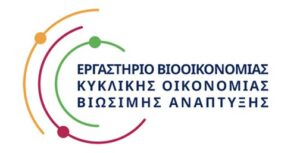
The “Bioeconomy, Circular Economy and Sustainable Development” Laboratory was founded with the aim of becoming an authoritative scientific body for the integration of the 17 Sustainable Development and Circular Economy Goals into the operating model of businesses and organizations and the country’s development strategy, through the implementation of studies and sustainability reports, the provision of consulting services to organizations and businesses, the organization of education and training programs and other activities.
For more information, please visit the Lab’s website.
Local and Regional Development Lab (LORED)
The Local and Regional Development Lab (LADP) addresses economic issues in a broad set of local and regional policy areas, including taxation, health care, energy, education, development, inequality, trade, fiscal regulation, innovation and the environment. The staff of the Laboratory have served in various consulting positions in the Private sector or worked as consultants to both general and regional administrations around the world.
For more information, please visit the Lab’s website.
Economics of Financial Markets, Risk Management and Corporate Governance Lab (EFMRCG)

The Laboratory “Economics of Money Markets, Risk Management and Corporate Governance” (EOHFRA), of the Department of Economics of the University of Piraeus, was founded and operates in accordance with Ministerial Decision 201719532 (Government Gazette 15226/Issue B’ 1603/10.05.2017).
In a constantly evolving economic environment, the role and mission that the Public University is called to play in modern society has changed dramatically.
The Laboratory was established with the aim of meeting the research needs and educational purposes of the Department of Economics and the University of Piraeus in general, but also to contribute with research, studies and expertise that it will undertake on behalf of private and public companies or agencies, Ministries, the European Union and International Organizations or Institutions in the development of the country.
This is achieved by taking into account various factors such as: modern economic theory, the institutional framework of Corporate Governance at European, International and National level, the operation and institutional framework of financial markets, modern means of financing and risk management and finally international trends in specific subject of study.
For more information, please visit the lab’s website.
Strategic Leadership & Digital Transformation Lab (iLeads)
The iLEADS Laboratory aims to develop and share expertise in the scientific areas that make up the field of Strategic Leadership, while creating a set of digital transformation tools and methods necessary for the modern, internationalized economic environment.
For more information, please visit the lab’s website website.
Publications and Working Papers
Publications and working papers fromt the Department’s research personnel can be found at IDEAS RePEc (Research Papers in Economics). Our Department is in the process of creating its own Working Paper Series.
SPOUDAI - Journal of Economics and Business
The Department hosts the SPOUDAI – Journal of Economics and Business, the only Greek Journal, with an award from the Academy of Athens, that publishes theoretical and empirical papers on contemporary issues of economics.
Research Seminars
Our Department hosts a number of Research Seminars each year, wehre distinguished researchers from Greece and abroad present their current work. In particular, research seminars fall broadly under two categories:
- Seminars, workshops and poster sessions of the Joint Economic Research Seminars (JERS) initiative, and
- The Department’s Internal Seminars.
Joint Economic Research Seminars

What is JERS:
The Joint Economic Research Seminar Series (JERS) is an online meeting point for faculty and researchers from collaborating Departments of Economics from the following Greek Universities
- University of Piraeus (host)
- University of Ioannina
- University of Macedonia
- Athens University of Economics and Business
- University of Crete
- National & Kapodistrian University of Athens
- JERS {Seminars} – 8 presentations of high-quality research articles by foreign researchers (frequency: 1 presentation per month, presentation duration: 1 hour),
- JERS {Workshops} – 4 workshops aimed at new and active researchers (Saturday 10.30-12.30), and
- JERS {Event} – 1 poster session, a short presentation of PhD candidates job market papers (Saturday 10.30-13.30).
- Department of Economics:
- Department of International & European Economic Studies:
Internal Seminars
In the Department’s Internal Seminars, our faculty members and PhD students present their current research. The purpose of these seminars is to receive feedback, to exchange ideas, to increase the synergy of the Department and to prepare the Department’s PhD students for conferences and possibly the job market.
Seminar & Workshop Agenda
JERS Seminars
Upcoming
JERS Workshops
Upcoming
JERS Workshops 2024-2025 #4 – Alexandros Bechlioulis
JERS Workshops 2024-2025 #3 – Alexandros Bechlioulis
Εσωτερικά Σεμινάρια
Upcoming
Undergraduate Studies
Our Department offers an Undergraduate Degree in Economics in Greek. However, certain courses may be offered in English or allow non-Greek speakers to enroll under the auspices of the Erasmus+ mobility program. To check which classes are available under this scheme, please check the following sections.
Attention for Erasmus+ Students: Please read carefully through the University’s Office of International and Public Relations website for all information pertaining to your studies while at our university. Pay especially close attention to sections “Mobility for Studies” and the F.A.Q.
Postgraduate Studies
The Department of Economics offers five Master’s programs:
M.Sc. Economic & Business Strategy
The Master’s Program in Economic and Business Strategy is the only one of its kind in our country and the longest-running master’s program in our department. It was established in 2001 to equip its graduates with appropriate specialized knowledge and sufficient tools to gain a comparative advantage in the labor market.
Financial and business strategy is fundamental to the structure, organization and operation of firms in a competitive and ever-changing globalized environment. Businesses must strategize their goals, as well as the means they will use to achieve them. Both the uniqueness of the program in the Greek economy and the successful careers of its graduates for over 2 decades make it one of the best options for those with a restless and creative spirit. The program combines the analysis offered by economic theory with practical application, which is enriched and documented through case studies and real events presented by market executives.
For more information, please visit the program’s website.
Health Economics & Management
The Master’s Program “Health Economics and Management” is aimed at students who are employed or aim to be employed in the health sector.
Students come from various fields of Health Sciences (Medicine, Pharmacy, Nursing, etc.), Economics & Business (Finance, Business Administration, etc.), and Applied Sciences (Engineering, Mathematics, Physics, Statistics , IT, etc.) among others. Students may be young graduates or professionals from different fields including: clinicians and health professionals from the public and private sector, analysts and executives of insurance organizations and companies, employed in the field of financial management and administration of health services, members of government and non-governmental organizations and Regulatory Authorities, executives of pharmaceutical companies and consulting companies regarding the economic evaluation and pricing of health services.
The program offers the necessary tools for obtaining specialization by combining the application of economic theories and methodologies in the analysis of the health sector with the design and policy analysis in the financing and provision of health services and analyzes contemporary problems arising in the management of health organizations both in the public as well as the private sector.
The main objective of the program is to provide postgraduate students with contemporary knowledge that focuses on both their theoretical and practical training in order to develop or develop skills that will prepare them to respond in the best possible way to the ever-increasing challenges of the health sector .
For more information please visit the program website by clicking here.
Economics of Education & Management of Educational Units
The aim of the Program is the study and research of the economic aspects of the educational process with an emphasis on the role of human capital in the modern environment, the concept of leadership in an educational context, the financial evaluation of resources for education, the financial management of educational units and the study and design effective educational policies and programs in a national and European context.
For more information, please visit the program’s website.
Bioeconomy, Circural Economy and Sustainable Development
The MSc in Bioeconomy, Circular Economy and Sustainable Development is an interdisciplinary study program of the Department of Economics of the School of Economics, Business and International Studies of the University of Piraeus.
The purpose of the program is to provide specialized knowledge in the fields of bioeconomy and sustainable development. For this purpose, theory and applied analysis in the fields of bioeconomy and sustainable development are approached in an interdisciplinary way as a tool for healthy entrepreneurship and innovative development.
This program combines the knowledge, practical skills and developments that characterize the modern business environment, thereby equipping executives with the necessary tools that will allow them to implement practices to minimize negative impacts for the preservation of biodiversity as a main element of a smart and ecological development in both the public and private sectors. At the same time, based on the 17 Sustainable Development Goals of the UN, it provides the appropriate resources for the preparation of sustainability studies for businesses, organizations and wider entities.
Through the curriculum, an attempt is made to provide theoretical and applied economic analysis as tools to research achievements in the bioeconomy, innovation and sustainable development. Finally, the development of the abilities of graduates and executives to delineate and assess contemporary financial needs with a multidisciplinary approach, making the most of existing knowledge and experiences.
For more information, please visit the program’s website.
Applied Public Economics & Policy
The M.Sc. “Applied Public Finance and Policy” is aimed at new graduates, but also those already working as specialist senior executives in the public sector or other organizations operating in sectors directly affected by public policy, such as banks, consultancies, foundations and NGOs.
The program accepts graduates of Economics, Business Administration or other related degrees, aiming:
to equip students with the fundamental knowledge necessary for employment in the field of public finance
to bring students into contact with the most modern problems that concern and will concern the public sector in the future
to offer freedom of choice to the student according to his interests, covering as wide a range of subjects as possible through two majors and electives
to prepare students for doctoral-level graduate studies
to create qualified scientists, capable of meeting needs in matters of effective administration of the public sector.
For more information, please visit the program’s website.
For the Financial Reports of our master’s programs for the academic years 2012-2013, 2013-2014, 2014-2015 and 2015-2016, click here(in Greek).
Doctoral Studies
The Department of Economics of the University of Piraeus, in accordance with the applicable provisions and legislation, provides the possibility of undertaking a doctoral thesis (Ph.D), provided the proposed research falls within the research interests of the Faculty members of the Department. Doctoral research should contribute to the promotion of science and be publishable in highly prestigious international conferences and scientific journals.
Research fields
Research in our Department is focused mainly (but not exclusively) in the following fields:
| Research Field | JEL CLASSIFICATION | Faculty |
| Mathematical and Quantitative Methods | C | C. Agiakloglou, N. Michelacakis |
| Macroeconomics and Monetary Economics | E | I. Kokores, A.E. Karadimitropoulou |
| International Economics | F | I. Kokores, A.E. Karadimitropoulou, K. Kottaridi, P. Pantelidis |
| Financial Economics | G | P. Vlamis, A. Kanas, I. Kokores, A.E. Karadimitropoulou, M. Psillaki |
| Public Economics | H | K. Eleftheriou |
| Health, Education, and Welfare | I | A. Vozikis, M. Raikou, T.M. Chletsos |
| Labor and Demographic Economics | J | K. Eleftheriou, T.M. Chletsos |
| Industrial Organization | L | M. Polemis, M. Tselekounis |
Business Administration and Business Economics Marketing / Accounting Personnel Economics | M | A. Kanas, I. Pollalis |
| Economic Development, Innovation, Technological Change, and Growth | O | K. Dribas, A.E. Karadimitropoulou, S. Karkalakos, C. Economidou |
Agricultural and Natural Resource Economics Environmental and Ecological Economics | Q | K. Drivas, M. Polemis |
| Urban, Rural, Regional, Real Estate, and Transportation Economics | R | P. Vlamis, S. Karkalakos |
| Strategic Management, Digital Transformation, and Leadership Development | - | I. Pollalis |
Participation conditions
The Department accepts application to undertake a doctoral thesis from holders of postgraduate diplomas of Greek Universities in the academic subjects of the Department or in a related field. Applications from holders of degrees from foreign universities may also by accepted, provided those have been recognized by the Hellenic National Academic Recognition and Information Center (DOATAP). As long as the above criteria are met, the candidates should choose a field of research and a supervising professor and, after consultation with the latter, draft the research proposal for the preparation of the doctoral research.
Application supplementary documents
Upon consultion with the supervising faculty member, candidates interested in conducting doctoral research can submit an application throughout the year, accompanied by the following supporting documents:
- Application form (click here).
- Proposal (template here).
- Official copies of diplomas (both undergraduate and postgraduate), including the certificate of recognition from DOATAP.
- At least two (2) letters of recommendation from faculty members of Greek or foreign universities or researchers from a recognized research center in Greece or abroad.
- Detailed CV.
- Proof of English language proficiency.
Additionnally, applicants may include any other information they deem to support their appilcations.
Applications must be submitted to the Secretariat of the Department of Economics:
80 Karaoli & Dimitriou Str., 185 34 Piraeus | 1st floor, Office Nr. 110 | E-mail: oik-secr@unipi.gr | Tel: 210 4142077 | Fax: 210 4142346.
Duration
The duration of the doctoral research is three (3) to six (6) years. Only in exceptional cases can this time be extended, by decision of the General Assembly (GA) of the Department, up to one year. The start time is defined as the date of the Department's General Assembly, which took the decision to accept the candidate's application.
Language
The Doctoral Candidate has the right to choose the language in which to write the doctoral thesis, after consultation with the Supervising Professor and the Three-Member Committee. In any case, the PhD candidate must include a summary in Greek in the thesis.
Obligations
PhD candidates must
- submit an annual progress report to the General Assembly of the Department every year.
- attend specific postgraduate level courses of the relevant Department, or other Departments of the University of Piraeus, after approval by the host Department, if the supervising professor, after the agreement of the Advisory Committee, deems it necessary.
- participate in the teaching of laboratory courses and the supervision of undergraduate and postgraduate courses, if requested.
- to present the progress of their research work in Seminars organized by the Department.
- to participate in the Research Seminars of the Department.
Failure to comply with the Department's regulation may lead to the rejection of the candidate by the Department.
For more details, see the Doctoral Thesis Regulations.
Postdoctoral research
The Department of Economics of the University of Piraeus, in accordance with the applicable provisions and legislation, provides the opportunity to undertake postdoctoral research (post-doc), provided the proposed research falls within the research interests of the Faculty members of the Department. Postdoctoral research should contribute to the promotion of science and be publishable in highly prestigious international conferences and scientific journals.
Selection Process
Applications may be submitted by candidates holding a PhD from a Greek or foreign university; in the latter case, the degree must first receive recognition from the Hellenic National Academic Recognition and Information Center (DOATAP). The final decision is made by the Departments' General Assembly.
Supporting documents
Candidates interested in conducting postdoctoral research may submit the relevant application throught the year. Upon comsultation with the consulting faculty member regarding the research's topic and proposed structure - postdoc supervisors must be at least at the rank of Associate Professor - prospecting candidates must submit the following documents:
1. Completed application form (click here).
2. Copies of degrees and transcripts (undergraduate, postgraduate and PhD).
3. At least two (2) recommendation letters from faculty members of Greek or Foreign Universities, or researchers from esteemed research centers in Greece or abroad.
4. Detailed CV.
5. Postodoctoral research proposal (click here for template).
Additionally, applicants may submit any other document they deem to be in sypport of their application.
Applications must be submitted alongside supporting documents at the Secretariat of the Department of Economics: University of Piraeus main building | 80 Karaoli & Dimitriou Str., 185 34 Piraeus | 1st floor, Office Nr. 110 | E-mail: oik-secr@unipi.gr | Tel.: 210 4142077 | Fax: 210 4142346.
Duration
Postdoctoral research is expected to be completed within two (2) to three (3) years. In excpetional cases, the duration may be extended with the approval of the Departments General Assembly. The start date is defined as the date the Department's General Assembly convened and took the decision to accept the candidate's application.
Obligations
Postdoctoral researchers have to:
- submit an annual progress report to the Department's General Assembly.
- take part in the teaching of laboratory courses and the supervision of undergraduate and postgraduate courses, if requested.
- present the progress of their research in Seminars organized by the Department.
- participate in the Departments' research seminars.
Failure to comply with the department's regulations may lead to the rejection of the researcher from the Department.
For more details (funding, obligations, expulsion), see the Department's Postdoctoral Research Regulations.
Distance and Lifelong Learning
The e-learning program “Economics of Consumers, Firms and Institutions” operates under the auspices of the Department of Economics, supervised by the University of Piraeus’ Training and Lifelong Learning Center (KEDIVIM), and aims to educate students in various topics of interest.
Our programme combines high standards of educational process with flexibility and innovation.
For more information follow the following link:

